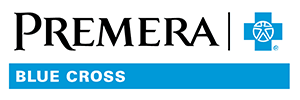Medicare Advantage Plans (PART C)
Medicare Advantage Plans may provide additional benefits that are worth exploring.

TABLE OF CONTENTS
- I. The Best Medicare Advantage Plans
- II. How We Rate Medicare Advantage Plan Providers
- III. How Do You Find the Best Medicare Advantage Plan?
- IV. What Does a Medicare Advantage Plan Cost?
- V. How To Get a Medicare Advantage Plan
- VI. Find Medicare Advantage Plans in Your State
- VII. What's the Best Medicare Advantage Plan?
- VIII. Aetna: Best for Well-rounded Coverage
- IX. Anthem: Best for Extra Benefits
- X. Blue Cross Blue Shield: Best for Large Provider Network
- XI. Cigna: Best for Lower Out-of-Pocket Costs
- XII. Highmark Inc.: Best for Good Value
- XIII. Humana: Best Coverage Area
- XIV. Kaiser Foundation: Best for On-site Medical Care
- XV. Premera: Best for HMO Coverage
- XVI. Providence: Best for Whole Health Care
- XVII. UnitedHealthcare: Best for Plan Options
- XVIII. Medicare Advantage Resources
- XIX. Sources
For Medicare-eligible people, a Medicare Advantage (MA) Plan is the other major option you may choose instead of Original Medicare. While Original Medicare –― known as Part A and Part B ― is provided through the federal government, Medicare Advantage Plans (also called Part C) are administered by private health insurance companies.
For 2022, enrollment in Medicare Advantage was projected to reach 29.5 million people. Most people have access to several Medicare Advantage Plans ― an average of 39 plans per beneficiary in 2022 ― so research carefully to find one that fits your budget and health care needs.
To help you find the best Medicare Advantage Plans, learn about some of the most well-known insurers and what plans are offered.
- Plans are available to all Medicare beneficiaries. Anyone who is eligible for Medicare can choose a Medicare Advantage Plan from an insurance company.
- Part C offers all-in-one coverage, such as many plans including Part D prescription drug coverage and additional coverages.
- It pays to review your coverage each year, whether keeping your Medicare Advantage Plan, choosing a different one, or switching to Original Medicare.
The Best Medicare Advantage Plans
Although there are many different private insurance companies that offer Medicare Advantage Plans, here’s an in-depth look at the most widely available providers.
| Medicare Advantage insurance company | Financial strength rating | Customer satisfaction rating | Value rating | Coverage rating |
|---|---|---|---|---|
| Aetna: Best for well-rounded coverage | 4.5 | 4.4 | 4.6 | 4.8 |
| Anthem: Best for extra benefits | 5 | 4.3 | 3.9 | 3.5 |
| Blue Cross Blue Shield: Best for large provider network | 4.5 | 3.8 | 4.4 | 5 |
| Cigna: Best for lower out-of-pocket costs | 4 | 3.6 | 3.6 | 3.5 |
| Highmark Inc.: Best for good value | 5 | 3.7 | 3.6 | 3.5 |
| Humana: Best coverage area | 4 | 4.2 | 4.5 | 4.8 |
| Kaiser Foundation: Best on-site medical care | 5 | 4.6 | 4 | 3.5 |
| Premera: Best for HMO coverage | 4 | 3.3 | 3 | 3 |
| Providence: Best for whole health care | 2 | 4.5 | 4 | 3.5 |
| UnitedHealthcare: Best for plan options | 4.5 | 3.7 | 4.2 | 4.7 |
How We Rate Medicare Advantage Plan Providers
Financial strength
The financial strength rating is based on the insurance company’s A.M. Best evaluation. A.M. Best is a credit rating agency specializing in the insurance industry, which rates an insurer’s ability to meet ongoing obligations.
Customer satisfaction
The customer satisfaction rating takes into account the insurer’s Medicare, Better Business Bureau (BBB), National Committee for Quality Assurance (NCQA), and Consumer Affairs ratings. These assessments are calculated using customer complaints and satisfaction ratings.
Value
The value rating calculates an insurer’s overall value based on monthly premium, annual deductible, visit cost, and annual maximum out-of-pocket cost.
Coverage
The coverage rating considers the insurer’s availability of coverages, plan types, and network size.
How Do You Find the Best Medicare Advantage Plan?
You can choose the best Medicare Advantage plan by determining your priorities, then matching your preferences with a plan provider in your area.
Expert tips for choosing a Medicare Advantage Plan:
- Look at star ratings: Reading ratings and reviews based on the real experiences of consumers is a great starting point. It can provide a quick apples-to-apples comparison of similar plans.
- Consider costs: When comparing costs, look at the monthly premium, deductible amount, copayment/coinsurance, and out-of-pocket maximum. Sometimes, you may find that a lower premium plan might not be the best value for you.
- Make sure you can keep your doctors: Typically, you have to see in-network doctors when you choose an MA plan, so you’ll want to make sure your favorite providers accept the plan you choose.
- Ensure your medications are covered: You should see how much all of your regular prescriptions would cost under each plan you’re considering.
- Choose your plan type: There are four main types of Medicare Advantage plans: health maintenance organization (HMO), preferred provider organization (PPO), Private Fee-for-Service (PFFS), and Special Needs Plan (SNP). Each one has its own pros and cons but HMOs and PPOs are the most common.
- Explore additional benefits: Some Medicare Advantage plans include extras that Original Medicare does not cover, including hearing, vision and dental exams, and fitness club memberships.
What Does a Medicare Advantage Plan Cost?
The average premium for Medicare Advantage plans in 2022 is $19 per month, down from $21.22 in 2021. This premium must be paid in addition to the Part B premium ($170.10 in 2022) that all Medicare recipients must pay.
Although that might make it seem like Medicare Advantage is more expensive than Medicare, some plans may have lower out-of-pocket costs than Original Medicare.
Some costs to consider when you’re researching plans include:
- Monthly premium: This amount stays the same throughout the year. Most people have a $0 premium plan option while others are low cost. Premiums can change from year to year.
- Copay: This is a set amount that you pay for a particular health service. For instance, you may pay $20 when you see a doctor and $30 when you see a specialist. Some plans do not have copays.
- Coinsurance: This is the percentage that you are responsible for paying for certain health services. Some plans do not require you to pay coinsurance.
- Deductibles: This is the amount you must pay at the beginning of your policy before your full coverage begins. Not all plans have deductibles, but some can be significant.
Many Medicare Advantage plans also have an out-of-pocket maximum amount, which puts a cap on how much you’ll have to pay per year.
How To Get a Medicare Advantage Plan
Anyone who is eligible for Medicare can sign up for a Medicare Advantage Plan. That typically includes people who are turning age 65 or who have a disability that qualifies them at a younger age.
You can sign up for Medicare Advantage when you first become eligible during the Initial Enrollment Period (IEP). If you start off with Original Medicare, you can switch to a Medicare Advantage Plan during the Annual Enrollment Period (AEP) from Oct. 15 to Dec. 7. Each year also has an Open Enrollment Period (OEP) between Jan. 1 and March 31, when you can switch between Medicare Advantage Plans or go back to Original Medicare.
Find Medicare Advantage Plans in Your State
What's the Best Medicare Advantage Plan?
- HMOs: HMOs typically require you to see only providers that are in their network. You usually need to get referrals to see specialists. These plans are usually lower cost.
- PPOs: PPOs have a preferred network of providers that offer discounted prices. You can choose to see doctors out of network for a higher cost.
- PFFS plans: PFFS plans let you see any Medicare-approved health care provider you’d like but you agree to pay a set price for services.
- SNPs: SNPs allow people with specific conditions and illnesses to see providers who offer specialized care.
Is Medicare Advantage better than Original Medicare?
Medicare Advantage Plans are better for some people than Original Medicare. Choosing between Medicare Advantage and Original Medicare depends on your personal financial and health situation. Evaluating your health and prescription drug needs is key. In many cases, Medicare Advantage ― because it includes more coverage ― can turn out to be more cost-effective and convenient. This is especially true if you live in an area that has competitive plan offers.
The best way to figure out the right plan for you is to add up the cost of purchasing Original Medicare, Medigap, and a stand-alone Medicare Part D prescription drug policy versus your Medicare Advantage plan costs.
Is Medicare Advantage better than Medigap?
Many people purchase Medigap supplemental insurance (Medigap) plans to cover the 20% that is not paid by Original Medicare. With Medicare Advantage, you do not need Medigap, and premiums sometimes cost less (or even $0). Again, deciding between Medicare Advantage and Medigap involves looking at all of the costs associated with each option.
Aetna: Best for Well-rounded Coverage

Company Overview
| Company founded | 1853 |
| Coverage area | 46 states plus Washington, D.C. |
| A.M. Best rating | A |
| BBB rating | A+ |
| NCQA accreditation | Yes |
| NCQA rating | 2.5 to 4.5 stars |
| Provider network | 1.2 million |
Aetna is the third-largest health insurance company in the nation. There are about 2.9 million beneficiaries enrolled in Aetna MA plans. Established in 1853, it has a long history, and a strong reputation in the industry, especially now that it’s part of CVS Health.
Aetna expanded its benefits for 2022 to focus on a holistic approach to health and new Medicare Advantage Plan options. All Aetna MA plans now offer $0 copay for hemoglobin A1c, urine protein, and COVID-19 testing, and $0 copay for diabetes eye exams, including a retinal photo.
For those seeking extra benefits, all of Aetna’s plans offer SilverSneakers benefits and telehealth visits for primary care, urgent care, and specialty care provided by a doctor, including mental health services. Most plans will have access to routine vision, dental, and hearing coverage.
Aetna Medicare Advantage Plan members say they’re impressed by the plan choices, some of which have no monthly premium but still offer good coverage. However, there are complaints of billing issues.
Why Aetna is best for well-rounded coverage: It has something to appeal to most beneficiaries ― several plan options, affordability, extra benefits, and a wide coverage area and provider network.
Is Aetna a good Medicare Advantage provider?
| What we like about Aetna Medicare Advantage Plans: | The drawbacks of Aetna Medicare Advantage Plans: |
|---|---|
|
|
What do Aetna Medicare Advantage Plans cover?
Many Aetna Medicare Advantage Plans include prescription drugs, vision and dental coverage, and wellness programs.
Additional benefits include SilverSneakers Fitness membership and telehealth coverage for all plans. Select plans may also have extras like hearing; vision and dental coverage; the Aetna Resources For Living® program; a Healthy Foods benefit card; therapeutic massage coverage; an adult companion program; fall prevention safety equipment, and more.
Who should choose Aetna Medicare Advantage Plans?
- Medicare beneficiaries who value an extensive provider network
- People looking for a variety of additional coverage beyond what Original Medicare offers
- Those seeking plans with low-cost premiums
How is Aetna rated?
Aetna Ratings
| Overall rating | (4.6 stars) |
| Financial strength rating: | (4.5 stars) |
| Customer satisfaction rating: | (4.4 stars) |
| Value rating: | (4.6 stars) |
| Coverage rating: | (4.8 stars) |
Anthem: Best for Extra Benefits

Company Overview
| Company founded | 2004 |
| Coverage area |
|
| A.M. Best rating | A |
| BBB rating | A+ |
| NCQA accreditation | Yes |
| NCQA rating | 3 to 4.5 |
| Provider network | 95% of physicians and 96% of hospitals |
Anthem was formed when WellPoint Health Networks Inc. and Anthem, Inc. merged in 2004. Today, it’s an independent licensee of the Blue Cross and Blue Shield Association, and offers Medicare Advantage plans in 14 states, serving 45 million people. It has a respectable Medicare rating, with more than 72% of its Medicare Advantage consumers in plans rated 4 stars or better.
What helps set Anthem apart is its robust selection of additional benefits for many of its plans, and its large provider network. However, customer satisfaction ratings are slightly below average when compared to other insurers in J.D. Power’s study.
Anthem Medicare customers say their monthly premiums are low and they like being able to order prescriptions online for delivery, but cite difficult billing issues.
Why Anthem is best for extra benefits: Anthem offers Essential Extras for many of its plans. These are no-cost benefits designed to enhance quality of life and health outcomes. Examples include allowances to purchase assistive devices, fitness trackers, or receive healthy meals, home helpers, or transportation.
Is Anthem a good Medicare Advantage insurance provider?
| What we like about Anthem Medicare Advantage Plans: | The drawbacks of Anthem Medicare Advantage Plans: |
|---|---|
|
|
What do Anthem Medicare Advantage Plans cover?
Anthem Medicare Advantage Plans provide similar coverage to other Medicare Advantage Plans, including routine dental, vision, and hearing care for most plans. Also, many beneficiaries have access to additional benefits called Essential Extras.
Who should choose Anthem Medicare Advantage Plans?
- Medicare beneficiaries who value an extensive provider network
- People looking for additional benefits beyond what other Medicare Advantage Plans offer
- Those who want different plan types to choose from
How is Anthem rated?
Anthem Ratings
| Overall rating | (4.2 stars) |
| Financial strength rating: | (5 stars) |
| Customer satisfaction rating: | (4.3 stars) |
| Value rating: | (3.9 stars) |
| Coverage rating: | (3.5 stars) |
Blue Cross Blue Shield: Best for Large Provider Network

Company Overview
| Company founded | 1929 |
| Coverage area | All 50 states, Washington, D.C., and Puerto Rico |
| A.M. Best rating | A |
| BBB rating | A- |
| NCQA accreditation | Yes |
| NCQA rating | 3 to 3.5 stars |
| Provider network | 1.7 million |
Blue Cross Blue Shield (BCBS), an association of 36 independent, locally owned and operated health insurance companies, is one of the most well-known insurance brands in the nation. With coverage in all 50 states, Washington D.C., and Puerto Rico, a large percentage of beneficiaries have access to a Blue Cross Blue Shield Medicare Advantage plan. There are 3.2 million people on a BCBS Medicare Advantage plan.
BCBS also has the largest provider network, partnering with 1.7 million physicians and health care providers. Plans vary widely depending on your location, so you’ll have to comb through the offerings for your area. But overall, Blue Cross Blue Shield earns a solid 4-star rating from Medicare.
Because BCBS is the parent company of 36 independent insurers, you may have to do some digging when researching plans or trying to contact someone to help you. In other words, you might not get the more personalized service that a smaller provider might specialize in.
Why Blue Cross Blue Shield is best for a large provider network: The company has more providers than any other Medicare Advantage insurers.
Is Blue Cross Blue Shield a good Medicare Advantage insurance provider?
| What we like about Blue Cross Blue Shield Medicare Advantage Plans: | The drawbacks of Blue Cross Blue Shield Medicare Advantage Plans: |
|---|---|
|
|
What do Blue Cross Blue Shield Medicare Advantage Plans cover?
In addition to Part A and Part B coverage, many Blue Cross Blue Shield plans also bundle in prescription drug coverage, preventive or comprehensive dental care, vision, and hearing checkups. Beneficiaries may also get telehealth coverage, eyewear allowance, a hearing aid benefit, and other perks.
Who should choose Blue Cross Blue Shield Medicare Advantage Plans?
- Medicare beneficiaries who prefer a broad provider network
- People who don’t mind paying a deductible, although not all plans require them
- Those who want several plan level options
How is Blue Cross Blue Shield rated?
Blue Cross Blue Shield Ratings
| Overall rating | (4.5 stars) |
| Financial strength rating: | (4.5 stars) |
| Customer satisfaction rating: | (3.8 stars) |
| Value rating: | (4.4 stars) |
| Coverage rating: | (5 stars) |
Cigna: Best for Lower Out-of-Pocket Costs

Company Overview
| Company founded | 1982 |
| Coverage area | 26 states and Washington, D.C. |
| A.M. Best rating | A |
| BBB rating | Not rated |
| NCQA accreditation | Yes |
| NCQA rating | 2.5 to 4 stars |
| Provider network | Global network of 1.5 million-plus relationships with health care providers, clinics, and facilities |
Cigna has been in business for more than 225 years and serves over 17 million customers. Its Medicare Advantage Plans are available in 26 states and Washington, D.C.
Cigna has made a huge push to expand its coverage area during the last couple of years since 2019 increasing MA plans by 80%. The company now offers plans in 477 counties across 26 states and Washington, D.C.
Beneficiaries appreciate affordable monthly premiums, but they’re limited to Cigna’s network of providers. Most plans include drug coverage and have zero-low premiums and deductibles. Annual max out-of-pocket limits are lower than some carriers. Cigna’s plans also have features like $0 copays for primary care, behavioral health, and physical therapy in a virtual setting.
Cigna had the third-highest rankings for customer satisfaction in J.D. Power’s study, and 3.9 stars in Medicare’s rating.
Why Cigna is best for lower out-of-pocket costs: Cigna offers at least one $0 premium MA plan available in every market, zero or low deductibles, and has $0 copays.
Is Cigna a Good Medicare Advantage Insurance Provider?
| What we like about Cigna Medicare Advantage Plans: | The drawbacks of Cigna Medicare Advantage Plans: |
|---|---|
|
|
What do Cigna Medicare Advantage Plans cover?
Cigna Medicare Advantage plans bundle in drug coverage, and sometimes, dental and vision. Beneficiaries also get 24/7 virtual care and other no-cost perks, including health and wellness discounts, case manager support, medication therapy management, and more.
Who should choose Cigna Medicare Advantage Plans?
- Anyone looking for an affordable plan with low out-of-pocket costs
- Those who are less interested in extra benefits as the plans may not be available in all areas
- People who want zero or low deductibles
How is Cigna rated?
Cigna Ratings
| Overall rating | (3.7 stars) |
| Financial strength rating: | (4 stars) |
| Customer satisfaction rating: | (3.6 stars) |
| Value rating: | (3.6 stars) |
| Coverage rating: | (3.5 stars) |
Highmark Inc.: Best for Good Value

Company Overview
| Company founded | 1930s |
| Coverage area |
|
| A.M. Best rating | A+ |
| BBB rating | A- |
| NCQA accreditation | Yes |
| NCQA rating | 3 to 3.5 stars |
| Provider network | Network sharing with Blue Cross Blue Shield provides access to providers in 47 states, Washington, D.C., and Puerto Rico. |
Highmark Inc. is the fourth largest independent licensee of the Blue Cross Blue Shield Association, serving Pennsylvania, Delaware, and West Virginia. There are six independent insurance companies that operate under the Highmark Inc. brand. Highmark offers HMO and PPO plan options and is in a strong financial position.
According to J.D. Power, Highmark also has the second-highest overall satisfaction rating for Medicare Advantage. It’s keeping up with plan improvements. In 2022, the company announced that it added more affordable premiums, including $0 premium plans, and expanded dental and vision coverage. Another new development is its Living Health solutions, which includes diabetes management tools and other supplemental perks.
Most Highmark Inc. plans also include SilverSneakers, telehealth services, wellness rewards, and more, providing good value for an affordable cost. Members say the customer service and doctor choices are excellent, and premiums are reasonable.
Why Highmark Inc. is best for good value: Highmark Inc. has many extra benefits and great customer ratings. Even if premiums are slightly higher, members get a lot for their money.
Is Highmark Inc. a good Medicare Advantage insurance provider?
| What we like about Highmark Inc. Medicare Advantage Plans: | The drawbacks of Highmark Inc. Medicare Advantage Plans: |
|---|---|
|
|
What do Highmark Inc. Medicare Advantage Plans cover?
In addition to covering hospital and medical services (the basic coverage of Medicare Parts A and B), Highmark Medicare Advantage plans provide extra benefits for preventive care. Most also cover additional items like hearing aids, vision and dental care, and fitness memberships.
Who should choose Highmark Inc. Medicare Advantage Plans?
- Medicare beneficiaries who value strong customer satisfaction
- Those seeking an array of extra benefits and telehealth
How is Highmark, Inc. rated?
Highmark, Inc. Ratings
| Overall rating | (3.9 stars) |
| Financial strength rating: | (5 stars) |
| Customer satisfaction rating: | (3.7 stars) |
| Value rating: | (3.6 stars) |
| Coverage rating: | (3.5 stars) |
Humana: Best Coverage Area

Company Overview
| Company founded | 1961 |
| Coverage area |
|
| A.M. Best rating | A- |
| BBB rating | A+ |
| NCQA accreditation | Yes |
| NCQA rating | 3.5 to 4 stars |
| Provider network | Broad network |
Humana may be the fifth-largest health insurance company, but it’s the top Medicare Advantage provider, offering plans in 85% of U.S. counties. Humana has about 4.9 million of its members enrolled in a Medicare Advantage plan.
Humana is well-rated by Medicare, with 4 stars, and it’s available across all 50 states and Washington, D.C. The company offers a nice variety of plans with no deductibles, some of which do not have monthly premiums. As such, Humana tends to have affordable out-of-pocket costs. For example, primary care doctor visits range from free to $15 while appointments with specialists cost around $20 to $45.
Recent additions to some of its plans include food security benefits and transportation for medical services. Humana also offers telehealth for primary care physician (PCP) visits, urgent care, and outpatient behavioral health with $0 copays.
While premiums may be low and the coverage broad, Humana Medicare Advantage Plan members complain about getting payments for covered procedures and medications.
Why Humana has the best coverage area: Humana is available in every state, and about nine in 10 (89%) Medicare beneficiaries have access to at least one Humana plan.
Is Humana a Good Medicare Advantage insurance provider?
| What we like about Humana Medicare Advantage Plans: | The drawbacks of Humana Medicare Advantage Plans: |
|---|---|
|
|
What do Humana Medicare Advantage Plans cover?
In addition to covering medical and hospital care, all Humana plans include memberships for SilverSneakers. Many also provide an allowance for over-the-counter (OTC) medications.
Who should choose Humana Medicare Advantage Plans?
- Medicare beneficiaries who don’t want to worry about yearly deductibles
- Those who would like a good range of options
How is Humana rated?
Humana Ratings
| Overall rating | (4.4 stars) |
| Financial strength rating: | (4 stars) |
| Customer satisfaction rating: | (4.2 stars) |
| Value rating: | (4.5 stars) |
| Coverage rating: | (4.8 stars) |
Kaiser Foundation: Best for On-site Medical Care

Company Overview
| Company founded | 1945 |
| Coverage area |
|
| A.M. Best rating | A+ |
| BBB rating | A- |
| NCQA accreditation | Yes |
| NCQA rating | 4 to 4.5 stars |
| Provider network | 23,600-plus physicians, 39 hospitals, 700-plus medical facilities |
Kaiser Foundation Medicare Advantage Plans have a very strong reputation for both medical care and customer satisfaction and serve 1.8 million members. It earns Medicare’s 5-star rating and ranks first in J.D. Power’s overall satisfaction survey.
The flipside is that Kaiser beneficiaries must use the Kaiser Permanente network, except in an emergency, so there are some limitations on which doctors you can use. Kaiser is only available in eight states and Washington, D.C. However, Kaiser’s lower costs and no annual deductibles make it a good fit for those in the coverage area who are content with the providers.
While Kaiser Medicare plans have good ratings, members of the plan say your access to specialists may be limited, as you may need to go through your primary care doctor first.
Why Kaiser Foundation is best for on-site medical care: Kaiser has a unique business model in which physicians are paid a salary regardless of how many patients they see. As such, Kaiser can focus on providing top-notch medical care.
Is Kaiser Foundation a good Medicare Advantage insurance provider?
| What we like about Kaiser Foundation Medicare Advantage Plans: | The drawbacks of Kaiser Foundation Medicare Advantage Plans: |
|---|---|
|
|
What do Kaiser Foundation Medicare Advantage Plans cover?
Kaiser Foundation plans cover medical services and hospitalization, prescription drugs, and emergency care all over the world. Members can also choose optional benefits like dental, hearing aids, and eyewear for a small monthly fee through Kaiser’s Advantage Plus coverage.
Who should choose Kaiser Foundation Medicare Advantage Plans?
- Medicare beneficiaries who prefer their physician visits, lab work, and pharmacy needs be taken care of in one place
- Those seeking an affordable monthly premium
- People who find too many plan options overwhelming
How is Kaiser Foundation rated?
Kaiser Foundation Ratings
| Overall rating | (4.3 stars) |
| Financial strength rating: | (5 stars) |
| Customer satisfaction rating: | (4.6 stars) |
| Value rating: | (4 stars) |
| Coverage rating: | (3.5 stars) |
Premera: Best for HMO Coverage

Company Overview
| Company founded | 1945 |
| Coverage area |
|
| A.M. Best rating | A |
| BBB rating | C- |
| NCQA accreditation | Yes |
| NCQA rating | 3 |
| Provider network | 20,000 doctors and specialists |
Premera is the largest health plan in the Pacific Northwest, serving 2.6 million people. As an independent licensee of the Blue Cross Blue Shield Association, Premera has the feel of a small company with the affiliation of a huge provider network.
Currently, Premera only offers Medicare Advantage Plans to 14 Washington counties. There are several plan types available, but all are HMOs. Each plan has no or a low premium. However, you must choose a PCP within the plan’s network and get referrals to see specialists. All of Premera’s Medicare Advantage Plans have no annual medical deductible. In-person primary care visits range from $5 to $15 while specialist appointments can go up to $50.
Premera earns 3.5 to 4 stars in Medicare’s ratings, which is average. But it’s focused on making some plan improvements. For 2022, alternative care services were added to some plans, including acupuncturists, chiropractors, and naturopaths, and dental coverage was added to all plans. However, Premera is limited to one state, and only HMO plans are available.
Why Premera is best for HMO coverage seekers: For those who live in the coverage area, Premera’s HMO plans are affordable, and a great number of doctors accept the plan.
Is Premera a good Medicare Advantage insurance provider?
| What we like about Premera Medicare Advantage Plans: | The drawbacks of Premera Medicare Advantage Plans: |
|---|---|
|
|
What do Premera Medicare Advantage Plans cover?
In addition to basic medical and hospital coverage, Premera plans offer extra benefits, including drug coverage. For example, its Hearing Care Solutions provide a free hearing aid fitting and one year of free follow-up care . All plans also include a $0 copay for routine preventive dental services, an eye exam, annual diabetic retinopathy screening, plus a $300 hardware allowance. Members also get no-cost Silver&Fit membership and a 24-hour nurse line.
Who should choose Premera Medicare Advantage Plans?
- Medicare beneficiaries looking for no or minimal monthly costs
- Those seeking additional benefits
- People who are OK staying within an HMO network
How is Premera rated?
Premera Ratings
| Overall rating | (3.3 stars) |
| Financial strength rating: | (4 stars) |
| Customer satisfaction rating: | (3.3 stars) |
| Value rating: | (3 stars) |
| Coverage rating: | (3 stars) |
Providence: Best for Whole Health Care

Company Overview
| Company founded | 1843 |
| Coverage area |
|
| A.M. Best rating | Not rated |
| BBB rating | Not rated for MA |
| NCQA accreditation | Yes |
| NCQA rating | 4 |
| Provider network | N/A |
Providence Health Plans was founded in 1843 as a faith-based company by the Sisters of Providence. Today, it’s a health insurance company that offers a good variety of Medicare Advantage HMO plans in Oregon and Washington.
Because Providence is a smaller company focused on a very limited geographic area, it is not included in some reviews or ratings. Providence has the distinction of being a 5-star rated company by the Centers for Medicare and Medicaid Services (CMS).
Although Providence has a high Medicare rating, members of the plan say they’ve had trouble getting the integrated system of care to work when visiting Providence providers.
Why Providence is best for whole health care: Providence is committed to patient-centered care and services, as reflected in its 5-star rating.
Is Providence a Good Medicare Advantage insurance provider?
| What we like about Providence Medicare Advantage Plans: | The drawbacks of Providence Medicare Advantage Plans: |
|---|---|
|
|
What do Providence Medicare Advantage Plans cover?
Providence plans cover basic medical and hospital care, and the majority of plans also have dental, hearing, and vision benefits. In addition, most plans offer a $0 copay for Tier 1 preferred generic drugs and reduced cost for a 90-day supply. Beneficiaries also get free Standard Fitness Network membership and one Home Fitness Kit through the Silver&Fit program.
Who should choose Providence Medicare Advantage Plans?
- Medicare beneficiaries who value strong ratings
- Those seeking whole health care
- People who prefer having several HMO options
How is Providence rated?
Providence Ratings
| Overall rating | (3.5 stars) |
| Financial strength rating: | (2 stars) |
| Customer satisfaction rating: | (4.5 stars) |
| Value rating: | (4 stars) |
| Coverage rating: | (3.5 stars) |
UnitedHealthcare: Best for Plan Options

Company Overview
| Company founded | 1977 |
| Coverage area |
|
| A.M. Best rating | A |
| BBB rating | Not rated |
| NCQA accreditation | Yes |
| NCQA rating | 3 to 4 stars |
| Provider network | 1.3 million physicians, 6,500 hospitals/care facilities |
UnitedHealthcare is the biggest health care company in the U.S., and one of the largest provider networks for Medicare Advantage Plans, with more than 7.3 million people enrolled in UnitedHealthcare Medicare Advantage plans as of 2021.
The company has a 3.5-star rating from Medicare and it is working to improve benefits and lower costs. For 2022, the company announced that 98% of members will have stable or improved benefits while nearly 3 million members will have $0 premiums.
UnitedHealthcare plans do not have deductibles or copays for primary care visits or telehealth, which helps keep costs predictable for members. The company ranked seventh in J.D. Power’s customer satisfaction survey.
Customers say that they like the company’s bonuses for annual physicals and flu shots, along with good customer service. However, they say they haven’t been able to lower copays for specialist visits.
Why UnitedHealthcare is best for plan options: UnitedHealthcare is known for having several Medicare Advantage Plans, including PPO, HMO options, and dual-eligible SNPs (D-SNPs).
Is UnitedHealthcare a good Medicare Advantage insurance provider?
| What we like about UnitedHealthcare Medicare Advantage Plans: | The drawbacks of UnitedHealthcare Medicare Advantage Plans: |
|---|---|
|
|
What do UnitedHealthcare Medicare Advantage Plans cover?
UnitedHealthcare plans have different levels of coverage, but many provide additional benefits on top of basic Part A and Part B like vision, hearing, and dental. Many plans provide routine dental coverage with a $0 copay for preventive services with in-network dentists.
Members may also get $0 copay virtual provider visits, and can access Renew Active, a fitness program. Another perk with most plans is HouseCalls, which offers members a yearly home visit from a licensed clinician.
Who should choose UnitedHealthcare Medicare Advantage Plans?
- Medicare beneficiaries who value an extensive provider network
- People who prefer to not have a deductible or copays
- Those who like to have a variety of plan options
How is UnitedHealthcare rated?
UnitedHealthcare Ratings
| Overall rating | (4.3 stars) |
| Financial strength rating: | (4.5 stars) |
| Customer satisfaction rating: | (3.7 stars) |
| Value rating: | (4.2 stars) |
| Coverage rating: | (4.7 stars) |
Medicare Advantage Resources
Explore these resources to learn more about how Medicare Advantage works, evaluate plan types, and understand your options.
| Organization | How you can get help | Contact |
|---|---|---|
| Center for Medicare Advocacy | This nonprofit group is dedicated to advancing access to comprehensive Medicare coverage, health equity, and quality health care for older people and people with disabilities. The site features a comprehensive library of articles and information about Medicare Advantage. | Contact Information: MedicareAdvocacy.org | (860) 456-7790 |
| Social Security Administration (SSA) | The SSA provides an excellent overview of Medicare benefits, how to enroll, and more. | Contact Information: SSA.gov | (800) 772-1213 |
| Centers for Medicare & Medicaid Services | This official government booklet, Understanding Medicare Advantage Plans, is an important resource that explains all of the ins and outs of Medicare Advantage. | Contact Information: Medicare.gov | (800) MEDICARE |
| State Health Insurance Assistance Program (SHIP) | This site helps you locate your local SHIP, but it also features a blog all about Medicare. It covers news items and provides tips and strategies for beneficiaries. | Contact Information: SHIPHelp.org | (877) 839-2675 |

Tammy Burns is an experienced health insurance advisor. She earned her nursing degree in 1990 from Jacksonville State University, obtained her insurance billing and coding certification in 1995, and holds a health and life insurance license in Alabama, Georgia, Iowa, Mississippi, and Tennessee. Burns is Affordable Care Act (ACA)-certified for health insurance and other ancillary, life, and annuity products. She maintains an active nursing license and practices private-duty nursing.
Burns’ background as a nurse, insurance biller and coder, and insurance consultant includes infectious disease, oncology, gynecology, phlebotomy, post operative, family medicine, geriatrics, home health, hospice, human resources, management, billing, coding, claims, fixed annuities, group and individual health and life products, and Medicare. She’s always been driven by a desire to help people, spending more than 25 years as a practicing nurse in hospitals, private doctors’ offices, home health, and hospice. As a nurse, Burns supported patients filing insurance claims with Medicare, Medicaid, and private insurance companies as well as responding to billing questions from confused patients.
Seeing firsthand how unsuspecting patients are frequently confused by an overly complex system they don’t understand led Burns to become an insurance agent and health care consultant, now helping people understand the medical system. Since becoming an insurance agent in 2013, she has worked with some of the largest and most reputable insurance carriers and agencies in the nation, and she has built a large and loyal clientele by way of her commitment to transparency and personalized service.

Tammy Burns is an experienced health insurance advisor. She earned her nursing degree in 1990 from Jacksonville State University, obtained her insurance billing and coding certification in 1995, and holds a health and life insurance license in Alabama, Georgia, Iowa, Mississippi, and Tennessee. Burns is Affordable Care Act (ACA)-certified for health insurance and other ancillary, life, and annuity products. She maintains an active nursing license and practices private-duty nursing.
Burns’ background as a nurse, insurance biller and coder, and insurance consultant includes infectious disease, oncology, gynecology, phlebotomy, post operative, family medicine, geriatrics, home health, hospice, human resources, management, billing, coding, claims, fixed annuities, group and individual health and life products, and Medicare. She’s always been driven by a desire to help people, spending more than 25 years as a practicing nurse in hospitals, private doctors’ offices, home health, and hospice. As a nurse, Burns supported patients filing insurance claims with Medicare, Medicaid, and private insurance companies as well as responding to billing questions from confused patients.
Seeing firsthand how unsuspecting patients are frequently confused by an overly complex system they don’t understand led Burns to become an insurance agent and health care consultant, now helping people understand the medical system. Since becoming an insurance agent in 2013, she has worked with some of the largest and most reputable insurance carriers and agencies in the nation, and she has built a large and loyal clientele by way of her commitment to transparency and personalized service.
Sources
- Aetna.com: Ready to go | Last accessed July 2025
- Antheminc.com: Corporate Fact Sheet | Last accessed July 2025
- Antheminc.com: Company History | Last accessed July 2025
- Antheminc.com: Stats & Facts | Last accessed July 2025
- Antheminc.com: Nearly Three-Quarters of Consumers in Anthem, Inc.-Affiliated 2022 Medicare Advantage Plans Will Be Enrolled in Plans That Are Highly Rated by CMS | Last accessed July 2025
- Anthem.com: Medicare Advantage Essential Extras | Last accessed July 2025
- BCBS.com: Blue Facts | Last accessed July 2025
- BlueCrossMA.com: 2022 Plans | Last accessed July 2025
- Cigna.com: Company Profile | Last accessed July 2025
- Cigna.com: Cigna Expands Medicare Advantage Plans for Third Consecutive Year | Last accessed July 2025
- Cigna.com: Medicare Advantage Plans (Part C): All-in-1 Peace of Mind | Last accessed July 2025
- CMS.gov: CMS Releases 2022 Premiums and Cost-Sharing Information for Medicare Advantage and Prescription Drug Plans | Last accessed July 2025
- CVSHealth.com: Aetna 2022 Medicare plans feature more benefits, lower member costs and greater affordability | Last accessed July 2025
- Highmark.com: Network Sharing | Last accessed July 2025
- Highmark.com: Highmark’s Medicare Advantage plans earn high scores in federal quality program | Last accessed July 2025
- Highmark.com: Plan Perks and Services | Last accessed July 2025
- Humana.com: Humana Expanding Medicare Advantage Health Plans in 2022 | Last accessed July 2025
- JDPower.com: 2021 US Medicare Advantage Study | Last accessed July 2025
- Kaiserpermanente.org: Our Model | Last accessed July 2025
- Kaiserpermanente.org: Fast Facts | Last accessed July 2025
- Kaiserpermanente.org: Why Choose Medicare Advantage | Last accessed July 2025
- KFF.org: Medicare Advantage 2022 Spotlight | Last accessed July 2025
- Medicare.gov: Understanding Medicare Advantage Plans | Last accessed July 2025
- Medicare.gov: Health Maintenance Organization | Last accessed July 2025
- Medicare.gov: Preferred Provider Organization | Last accessed July 2025
- Medicare.gov: Private Fee-For-Service Plans | Last accessed July 2025
- Medicare.gov: Special Needs Plan | Last accessed July 2025
- Premera.com: Medicare Advantage Plans | Last accessed July 2025
- Premera.com: Benefit Changes for 2022 | Last accessed July 2025
- Premera.com: Medicare Advantage Coverage | Last accessed July 2025
- ProvidenceHealthplan.com: Medicare Advantage | Last accessed July 2025
- UHC.com: Find a Doctor | Last accessed July 2025
- UnitedHealthGroup.com: UnitedHealthcare’s 2022 Medicare Plans Shaped by Consumer Expectations for Value, Choice and Experience | Last accessed July 2025
